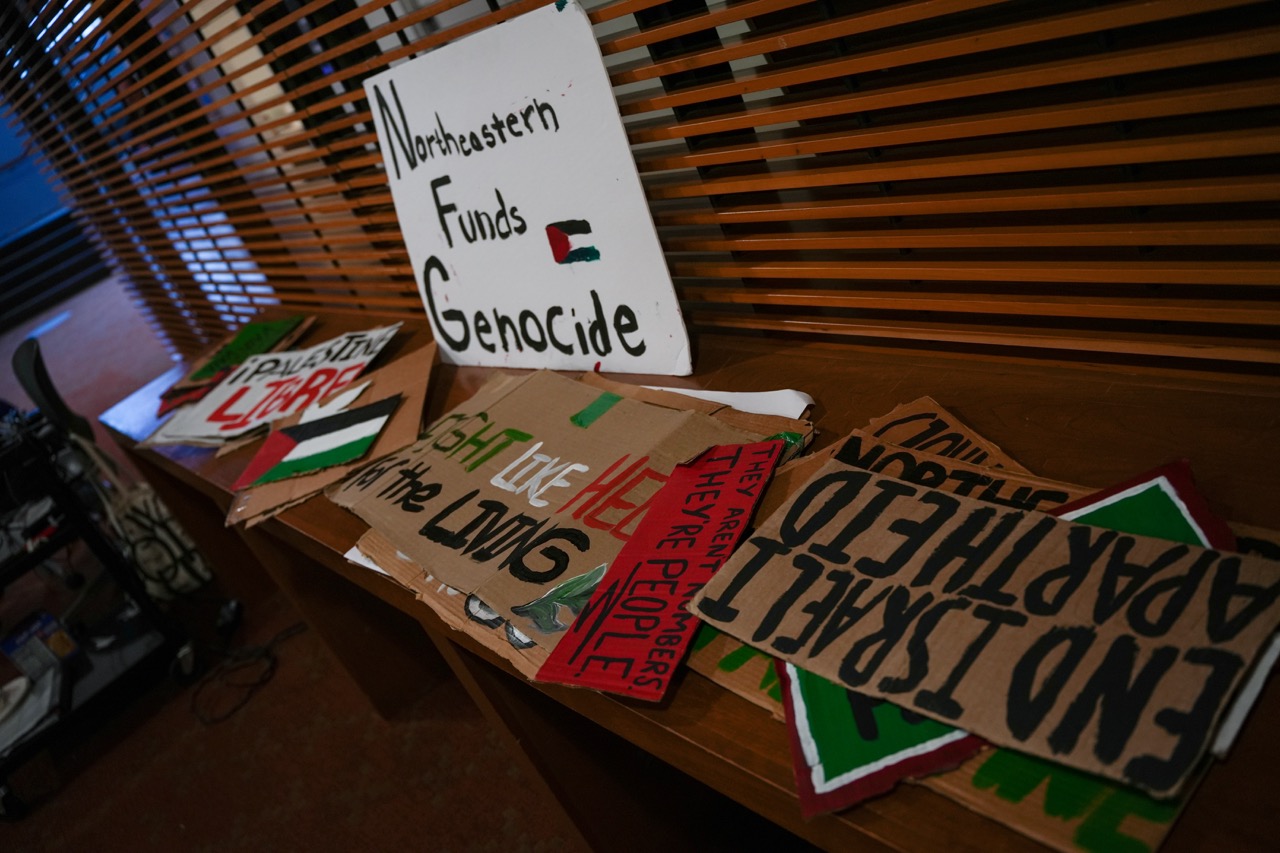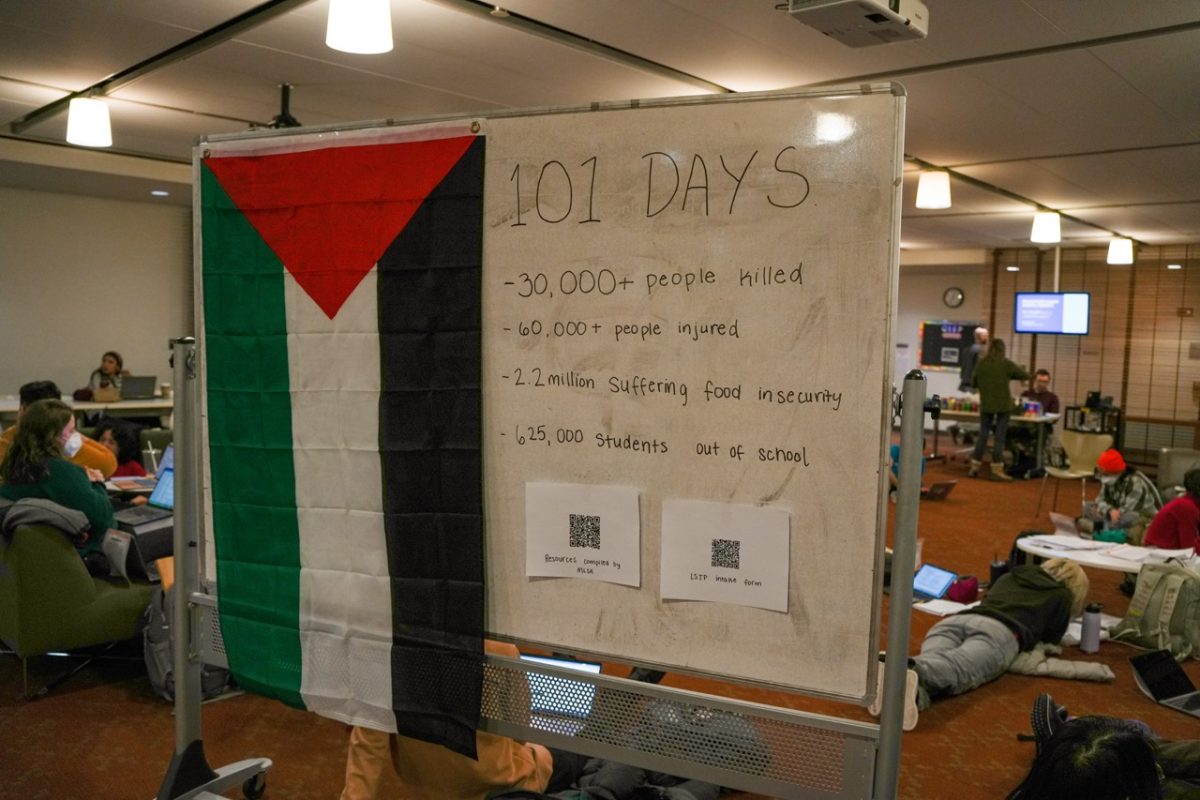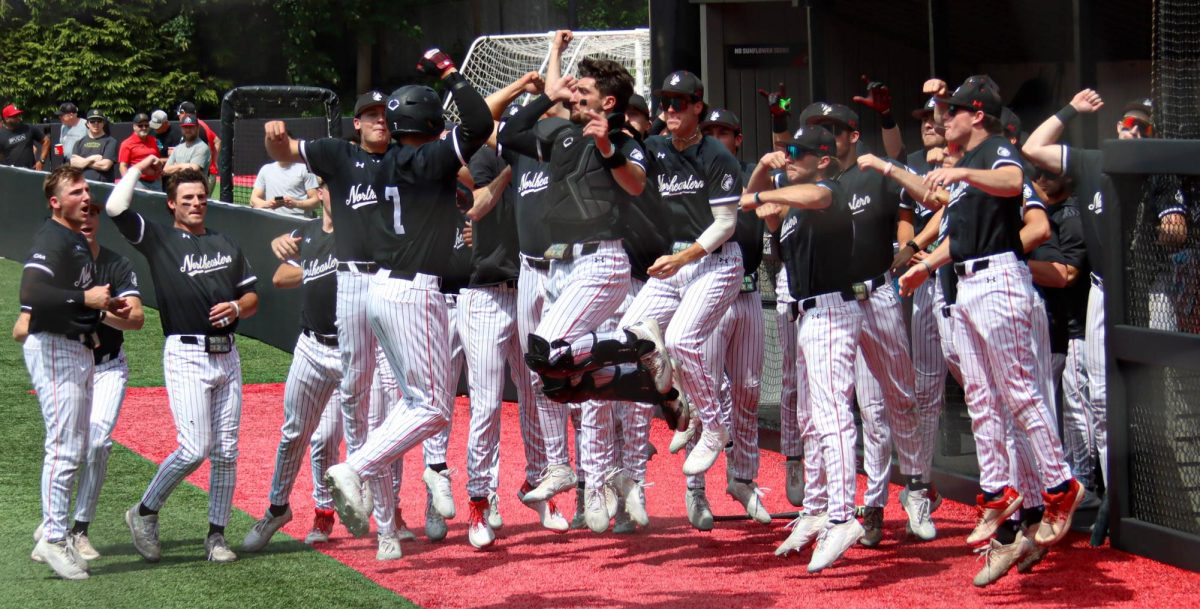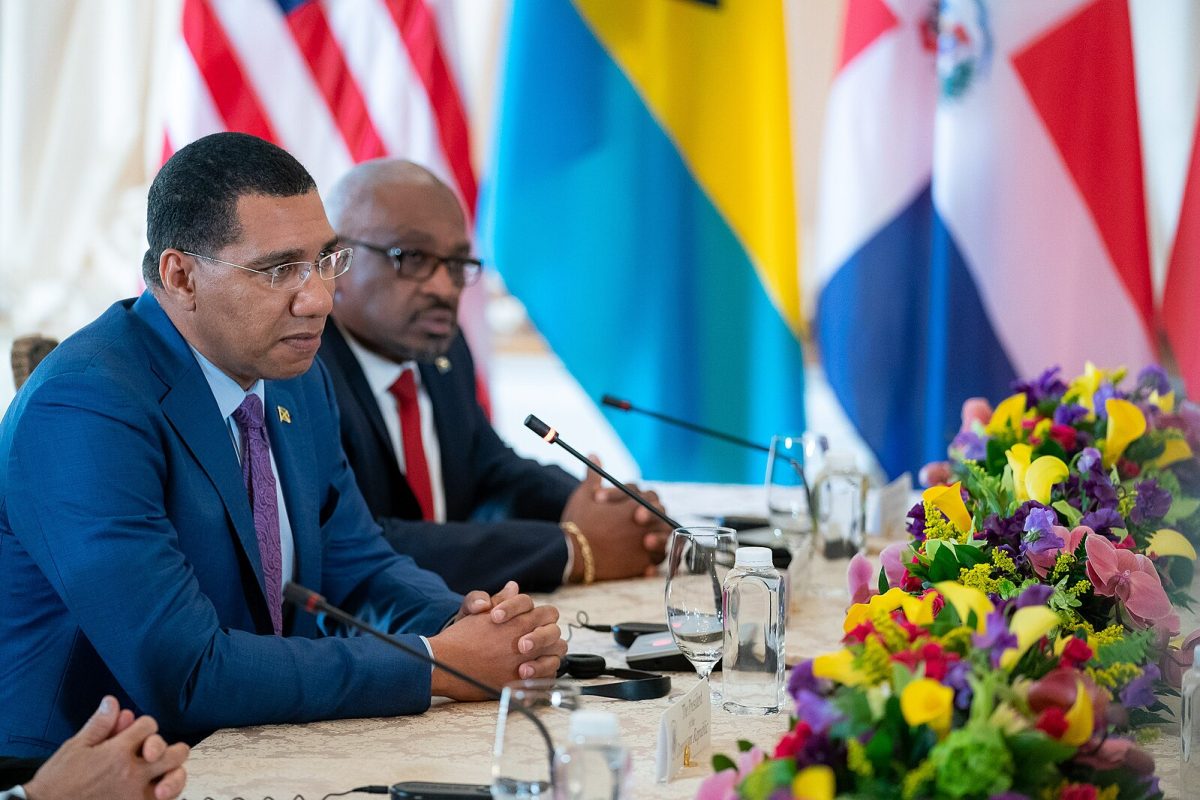Northeastern University School of Law Students for Justice in Palestine chapter staged a 10-hour sit-in in Dockser Hall Commons Jan.16 with over 60 students in attendance. Participants called for a ceasefire in what they said was the Israeli “genocide” of Palestinians in Gaza and urged the university to divest from companies that profit from the conflict.
Law students in the Northeastern University School of Law, or NUSL, organized the protest, which was held from 9 a.m. to 7 p.m. and included speeches from multiple student activists, to protest NUSL’s involvement with Israel. According to an Instagram post from Northeastern University School of Law Students for Justice in Palestine, or NUSL SJP, NUSL suppresses pro-Palestine attitudes and movements among law students through, “police brutality directed at peaceful student protesters, threats of ‘condemning’ student activists, suppression of student statements, and the removal of posters and banners.”
“One of the things that we wanted to do today is call attention to the fact that it’s been [over] 100 days of this current genocidal onslaught of the Palestinian people committed by Israel, and we wanted to be disruptive to get people out of their status quo, out of going about day by day as if nothing is happening,” said Hala, a second-year law student who asked for her last name to remain anonymous due to fear of potential doxxing. “The sit-in is partly to say, ‘stop going to classes, stop pretending like everything is normal, but also come and read about Palestinian writers and poets and historians and what it means to be a Palestinian advocate.’”
NUSL SJP organizers gave speeches on varied topics concerning the war, including the Boycott, Divestment and Sanctions movement. Advocates called on Northeastern to divest from RTX Corporation, formerly Raytheon Company, which partnered with Israeli company Rafael Advanced Defense Systems to produce components for Israel’s Iron Dome air defense system.
“Northeastern University gets a lot of funding from different Zionist philanthropist organizations and other Zionist organizations,” said Mariam Hassan, a NUSL SJP organizer and first-year law student. “When we hear this threat of student sanctions, we know that’s the pressure coming from the donors. To Northeastern University and NUSL, you guys get plenty of tuition from us. I don’t see the need for the conflict of interest because you now have to protect the needs of your donors … but at the end of the day, that conflicts with the needs of your students.”
Northeastern University Police Department, or NUPD, officers and NUSL staff were present throughout the sit-in to monitor the protest. Attendees said they were concerned about the level of surveillance, feeling that other students on campus did not receive similar treatment. NUPD and NUSL staff declined to comment when approached at the protest.
“The second we posted that we were gonna be doing this on social media, the greater university got involved, which is rare considering the law school kind of acts separately from the greater university,” Hala said. “A police officer came this morning to do a walk-through and observe us, but this seems to be a unique response.”
NUSL SJP has denied allegations of antisemitism at pro-Palestine events on campus. An open letter signed by over 300 Northeastern faculty, staff and students condemned the use of controversial slogans at a student march Oct. 20, which included, “There is only one solution: Intifada, revolution” and “From the river to the sea, Palestine will be free.”
NUSL SJP and other pro-Palestine groups on campus have posted multiple Instagram posts refuting claims that the pro-Palestinian movement is inherently antisemitic and echoed similar sentiments at the sit-in.
“I fully believe that anti-Zionism is fully rooted in my Judaism and how I identify as a Jewish person,” said Nick, a NUSL SJP organizer and law student who asked for his last name to remain anonymous. “The accusations of antisemitism detract from Palestinian organizers and Palestinian voices who have been doing this for a long time.”
Speakers also said they found it hypocritical that the university would address the Oct. 7 attacks on Israelis as a tragedy, but not speak out on the killing of over 25,000 Palestinian civilians in Gaza.
“We see now there’s been tens of thousands of Palestinians who have been murdered, and we don’t get any more communication from President Aoun, we don’t get any emails telling us, ‘Our greater university community is mourning the loss of so many Palestinians,’” said a student speaker who asked to remain anonymous. “That’s just not there.”

The activists also condemned NUSL’s 2024 Brown Forum for Women and the Law for hosting Juliette Kayyem, a former Obama administration official, radio host and faculty chair of Homeland Security and Global Health Projects at Harvard University’s Kennedy School of Government. Kayyem previously worked as a senior advisor to NSO Group, an Israeli technology firm that developed Pegasus, a spyware tool that governments around the world have reportedly used to surveil lawyers, political opponents, activists and journalists.
Following disciplinary charges brought against members of Huskies for a Free Palestine for “failing to adhere to the Student Code of Conduct” following a sit-in in December 2023, student activists said they were troubled by what they thought to be suppression of free speech. Many students attending the sit-in asked for their names and faces to be excluded from coverage, fearing charges from the university. The university has clarified that “disruptive gatherings” are in violation of the Student Code of Conduct.
“It is disappointing that students are facing disciplinary charges for simply speaking up about something that they believe in, especially when Northeastern prides itself so much on being a community that supports public interests and advocacy and free thinkers and uses that as an advertising point to get students to come,” said Pavithra, a NUSL SJP organizer and law student who asked for her last name to remain anonymous. “Then, once the students are actually here, [they] then punish them for speaking up about what they believe in. It’s ironic and disrespectful.”
Organizers also played videos at the sit-in, which included discussions of civil rights leaders Martin Luther King Jr. and Nelson Mandela. The sit-in took place the day after Martin Luther King Jr. Day, and the video on King claimed that while King spoke positively of Zionism during his activism career, his anti-war and anti-violence stances meant he would have opposed the violence in Gaza today.
The videos also discussed Nelson Mandela, an anti-apartheid activist and the first president of South Africa. Drawing comparisons between the subjugation of Black South Africans under apartheid and the current conditions of Palestinians in Gaza, the videos argued that “Palestinian freedom” is part of the wider issue of colonialism.
Following Israel’s response to the Oct. 7 attacks, South Africa brought charges of genocide against Israel in the International Court of Justice Dec. 29. Multiple South African leaders have compared the conflict between Israel and Palestine to that of South African apartheid, claiming both a shared history of oppression and an understanding of human rights abuses. Student activists at the sit-in discussed South Africa’s long history of support for Palestine.
“I’m not entirely sure any other cause besides the Palestinian cause gets this much backlash,” Hala said. “It seems like [merely] saying the word Palestine invites a lot of pushback and vitriol … I would want [the university] to respect our First Amendment rights to assemble and to free speech and to gather and to talk about a cause that’s important to us.”















